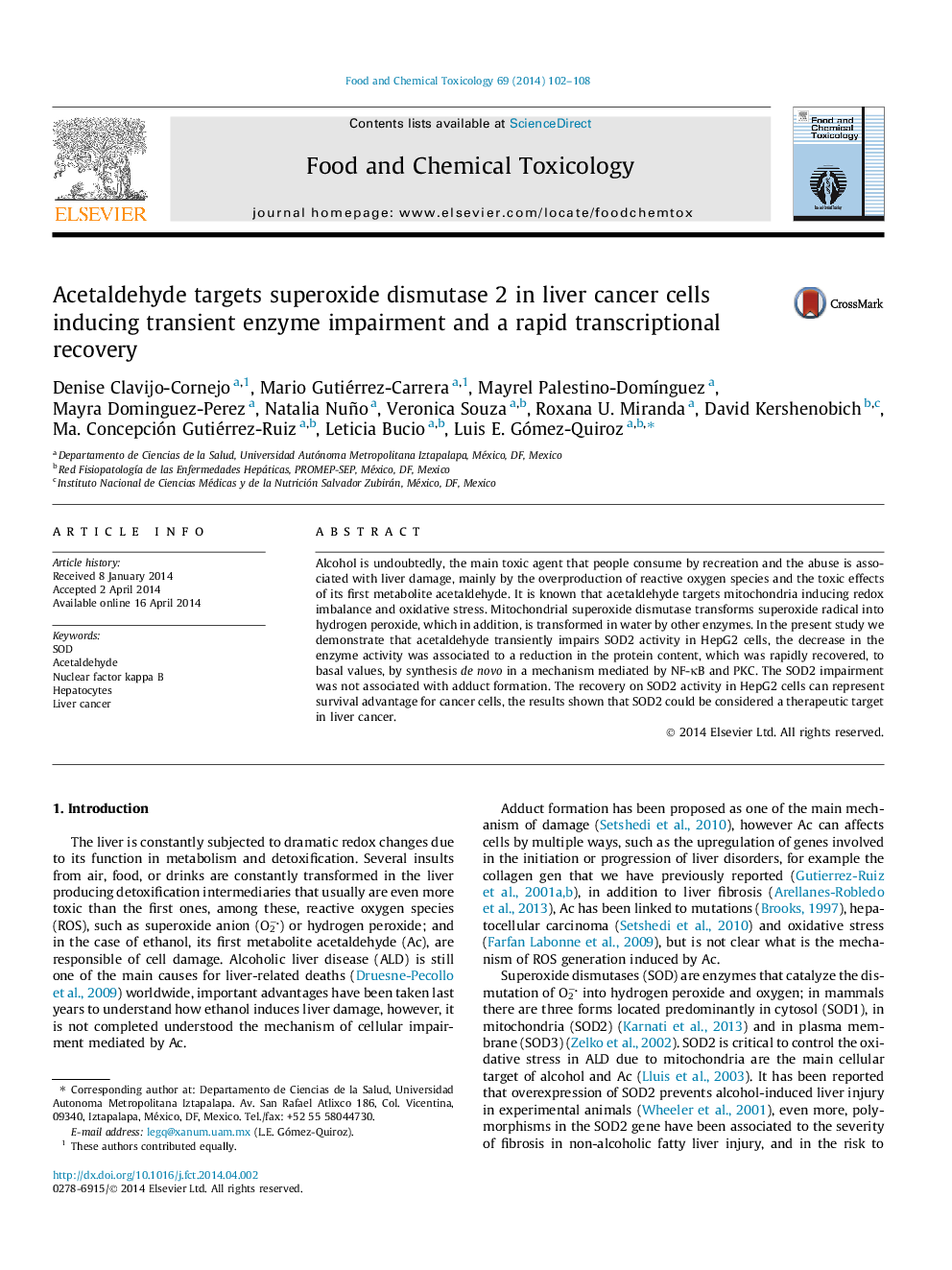| Article ID | Journal | Published Year | Pages | File Type |
|---|---|---|---|---|
| 5850247 | Food and Chemical Toxicology | 2014 | 7 Pages |
Abstract
Alcohol is undoubtedly, the main toxic agent that people consume by recreation and the abuse is associated with liver damage, mainly by the overproduction of reactive oxygen species and the toxic effects of its first metabolite acetaldehyde. It is known that acetaldehyde targets mitochondria inducing redox imbalance and oxidative stress. Mitochondrial superoxide dismutase transforms superoxide radical into hydrogen peroxide, which in addition, is transformed in water by other enzymes. In the present study we demonstrate that acetaldehyde transiently impairs SOD2 activity in HepG2 cells, the decrease in the enzyme activity was associated to a reduction in the protein content, which was rapidly recovered, to basal values, by synthesis de novo in a mechanism mediated by NF-κB and PKC. The SOD2 impairment was not associated with adduct formation. The recovery on SOD2 activity in HepG2 cells can represent survival advantage for cancer cells, the results shown that SOD2 could be considered a therapeutic target in liver cancer.
Related Topics
Life Sciences
Agricultural and Biological Sciences
Food Science
Authors
Denise Clavijo-Cornejo, Mario Gutiérrez-Carrera, Mayrel Palestino-DomÃnguez, Mayra Dominguez-Perez, Natalia Nuño, Veronica Souza, Roxana U. Miranda, David Kershenobich, Ma. Concepción Gutiérrez-Ruiz, Leticia Bucio, Luis E. Gómez-Quiroz,
